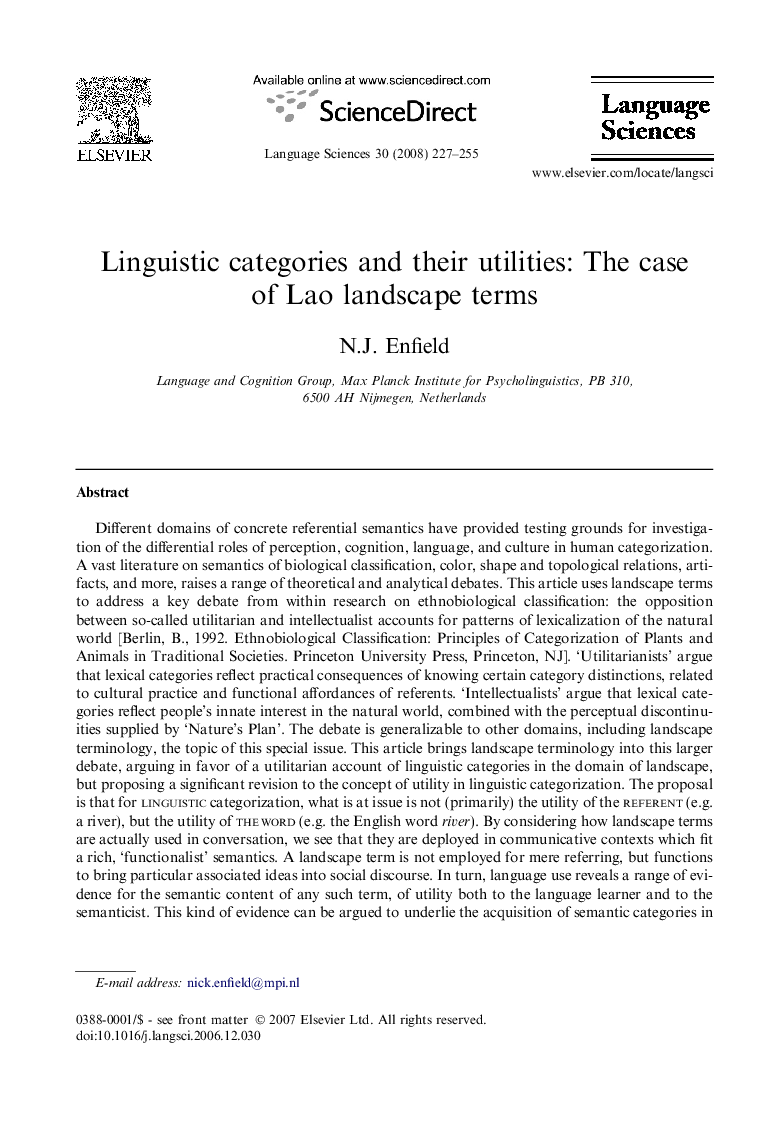| کد مقاله | کد نشریه | سال انتشار | مقاله انگلیسی | نسخه تمام متن |
|---|---|---|---|---|
| 1103649 | 1488167 | 2008 | 29 صفحه PDF | دانلود رایگان |

Different domains of concrete referential semantics have provided testing grounds for investigation of the differential roles of perception, cognition, language, and culture in human categorization. A vast literature on semantics of biological classification, color, shape and topological relations, artifacts, and more, raises a range of theoretical and analytical debates. This article uses landscape terms to address a key debate from within research on ethnobiological classification: the opposition between so-called utilitarian and intellectualist accounts for patterns of lexicalization of the natural world [Berlin, B., 1992. Ethnobiological Classification: Principles of Categorization of Plants and Animals in Traditional Societies. Princeton University Press, Princeton, NJ]. ‘Utilitarianists’ argue that lexical categories reflect practical consequences of knowing certain category distinctions, related to cultural practice and functional affordances of referents. ‘Intellectualists’ argue that lexical categories reflect people’s innate interest in the natural world, combined with the perceptual discontinuities supplied by ‘Nature’s Plan’. The debate is generalizable to other domains, including landscape terminology, the topic of this special issue. This article brings landscape terminology into this larger debate, arguing in favor of a utilitarian account of linguistic categories in the domain of landscape, but proposing a significant revision to the concept of utility in linguistic categorization. The proposal is that for linguistic categorization, what is at issue is not (primarily) the utility of the referent (e.g. a river), but the utility of the word (e.g. the English word river). By considering how landscape terms are actually used in conversation, we see that they are deployed in communicative contexts which fit a rich, ‘functionalist’ semantics. A landscape term is not employed for mere referring, but functions to bring particular associated ideas into social discourse. In turn, language use reveals a range of evidence for the semantic content of any such term, of utility both to the language learner and to the semanticist. This kind of evidence can be argued to underlie the acquisition of semantic categories in language learning. The arguments are illustrated with examples from Lao, a Tai language of mainland Southeast Asia.
Journal: Language Sciences - Volume 30, Issues 2–3, March–May 2008, Pages 227–255